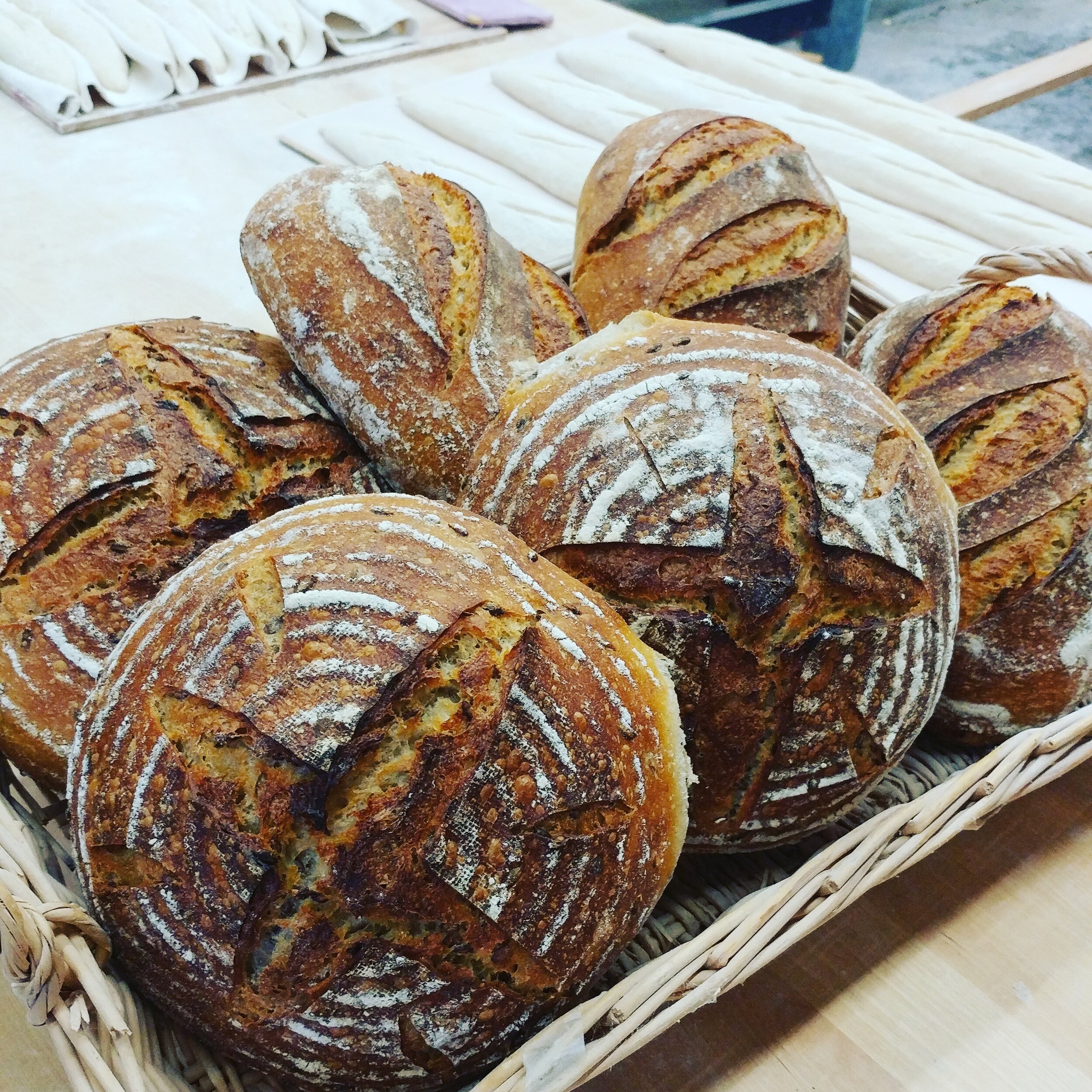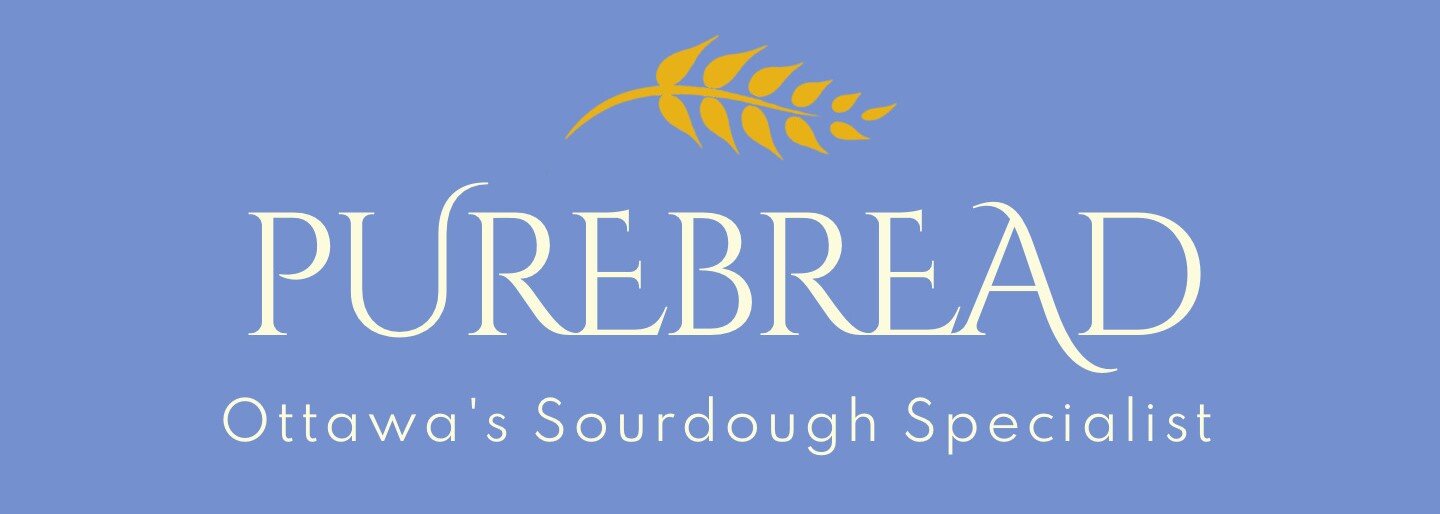Our story
Purebread baker Andy Lofthouse trained in his home town of Edinburgh, Scotland, with the founder of the UK’s Real Bread Campaign. He started Purebread from his Ottawa home kitchen in 2013, one week after his arrival in Canada. The bakery has since moved several times as it has grown, with spells at Hintonburg's much-missed Back Lane Cafe, the basement kitchen of the welcoming Centretown United Church, and Little Italy's Victory Caffe, before finding its permanent production facility in Ottawa's east end.
Sourdough loaves resting on the bench.
Ready to go!
Full oven load.
During Purebread's residence at the Centretown United Church, film maker (and Purebread customer) Patrick Lesage shot this short piece and talked to Andy about his passion for traditional bread.
What is naturally leavened bread?
From the dawn of civilisation until the industrial age making dough with wild yeast – also known as sourdough – was the primary method of bread baking. But in the late 19th century baker’s yeast was developed and large-scale industrial baking soon flourished. Industrial bread is now leavened with commercial yeast and spiked with enzymes, preservatives and other dough “improvers”. Loaves are made to rise rapidly, reducing the quality, taste and nutritional content of bread.
Creating sourdough bread takes days. From leaven to loaf, the process is slow and entirely natural. First the sourdough culture is nourished with fresh flour and water, and the mixture is allowed to slowly ferment. That natural leaven is then used to make the dough rise. Rising is a multi-stage process that can take hours. By the time the loaf goes into the oven, it can have been up to three days in the making.
Fortunately, this lengthy production time improves the taste and quality of the bread. Sourdough is healthier too – it’s more digestible and nutritious than bread leavened with commercial yeast. This is because sourdough’s lactic acids make the vitamins and minerals in the flour more easily absorbed by the body. The acids slow down the rate at which glucose is released into the bloodstream and lower the bread's glycaemic index. They also render the gluten in the flour more digestible and less likely to cause food intolerances. To top it all off, sourdough bread tastes better and ages more gracefully, with bread staying fresher for longer.
Local partnerships
Celebrating Local Grains with Ironwood Organics
At Purebread, our commitment to supporting local farmers and fostering a sustainable food system is at the heart of everything we do. We're proud to collaborate with Ironwood Organics, a dedicated farm located near Gananoque, Ontario, known for cultivating heritage grains using organic and regenerative practices.
Ironwood Organics specializes in growing landrace wheat varieties, which are traditional grains that have adapted over time to local conditions, enhancing biodiversity and resilience. One of their standout grains is Rouge de Bordeaux wheat, a 19th-century French variety celebrated for its rich, nutty flavor with subtle notes of spice. This exceptional wheat forms the foundation of our Purebread, Ironwood Sourdough, and Bordeaux Red loaves, offering a hearty texture and deep, earthy taste.
We're also excited about the upcoming harvest of Red Fife and Old Welsh wheat varieties. Red Fife, Canada's first named wheat variety, was the dominant wheat grown in the country from the mid-1800s until the early 1900s. It's renowned for its robust flavor and excellent baking qualities. Old Welsh wheat, another heritage variety, brings its own unique characteristics and history to our bread offerings. We look forward to incorporating these grains into our bread production this autumn.
Beyond their exceptional flavors, the heritage grains from Ironwood Organics are stone-milled to retain the bran and germ, ensuring that the flour is rich in fiber, B vitamins, minerals, and phytochemicals—components often lost in modern refined flours. This results in bread that's not only delicious but also more nutritious and potentially easier to digest for those with sensitivities.
By choosing our breads made with Ironwood Organics' heritage grains, you're supporting sustainable agriculture and enjoying the wholesome goodness of grains that have stood the test of time.




